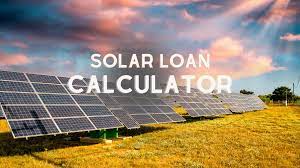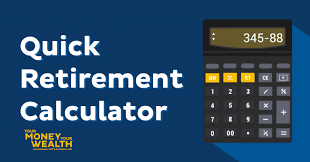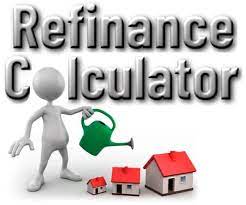As the world embraces sustainable energy solutions, solar power has emerged as a compelling choice for homeowners and businesses alike. The prospect of reducing energy bills, decreasing carbon footprints, and achieving energy independence has driven a surge in solar installations. However, while the benefits of solar energy are clear, the financial aspect of transitioning to solar power often raises questions. How much will a solar system cost? What are the savings? Can I afford it? These questions can be answered and demystified with the help of a solar loan calculator.
In this comprehensive guide, we will delve into the world of solar loans and explore how utilizing a solar loan calculator can empower you to make informed decisions about your solar investment. From understanding the basics of solar financing to maximizing your savings, we’ve got you covered.
Solar Loan Calculator
Amortization Schedule
| Month | Balance | Payment | Principal | Interest | New Balance |
|---|
Understanding Solar Loans
Before we dive into the specifics of a solar loan calculator, let’s grasp the fundamentals of solar loans themselves.
What Are Solar Loans?
Solar loans are specialized financial tools designed to make solar energy systems accessible to homeowners and businesses. These loans are tailored to cover the upfront costs of purchasing and installing solar panels, inverters, and other essential components. Unlike traditional loans, solar loans offer unique terms and benefits that cater to the needs of solar adopters.
The Benefits of Solar Loans
Solar loans come with a range of advantages that make them an attractive choice for financing your solar energy system:
Affordable Payments: Solar loans offer competitive interest rates, ensuring that your monthly payments remain reasonable. These payments are often lower than your previous utility bills, providing immediate savings.
Ownership and Tax Benefits: When you finance your solar system with a loan, you become the owner of the system. This means you are eligible for federal and state incentives, tax credits, and rebates that can significantly reduce the overall cost.
Increased Home Value: Solar panels can increase the value of your home, making it a smart investment for homeowners planning to sell their properties in the future.
Energy Independence: By generating your electricity, you can free yourself from the uncertainties of rising utility rates, achieving a higher level of energy independence.
The Role of a Solar Loan Calculator
Now that we have established the significance of solar loans let’s explore how a solar loan calculator can be your trusted ally in this renewable energy journey.
What Is a Solar Loan Calculator?
A solar loan calculator is an online tool that helps you assess the financial aspects of your solar investment. By inputting essential details such as the cost of your solar system, loan terms, interest rates, and incentives, the calculator provides you with valuable insights into your potential savings, monthly payments, and overall return on investment.
How Does It Work?
Using a solar loan calculator is simple and efficient:
Enter Your Solar System Cost: Begin by inputting the total cost of your solar energy system, including the installation expenses.
Specify Loan Terms: Define the loan terms, including the interest rate and the duration of the loan. Solar loans typically offer terms ranging from 5 to 20 years.
Explore Incentives: Take advantage of available federal and state incentives, tax credits, and rebates by entering them into the calculator.
Review the Results: With these inputs, the solar loan calculator generates a detailed report that includes:
Monthly Payments: You’ll see an estimate of your monthly loan payments.
Total Savings: Discover how much you can save over the life of your solar system.
Return on Investment (ROI): Assess the financial benefits of your solar investment, including payback periods and long-term savings.
Environmental Impact: Learn about the positive environmental impact of your solar system, such as reduced carbon emissions.

Maximizing Your Solar Savings
A solar loan calculator not only provides financial insights but also helps you optimize your solar savings:
Adjust Loan Terms: Experiment with different loan terms to find the balance between manageable monthly payments and faster payback periods.
Explore Incentives: Take full advantage of available incentives and rebates, as they can significantly reduce the overall cost of your solar system.
Compare Financing Options: Use the calculator to compare different financing options, such as solar leases, power purchase agreements (PPAs), and solar loans. Determine which option aligns best with your financial goals.
Choosing the Right Solar Loan
When using a solar loan calculator, consider the following factors:
Interest Rates: Compare loan offers to find the most competitive interest rates. Even a small difference in interest rates can lead to substantial savings over the life of your loan.
Loan Terms: Assess the loan terms to ensure they align with your financial goals and budget.
Incentives: Leverage available incentives and rebates to reduce your overall solar system cost.
Maintenance and Warranties: Factor in maintenance costs and warranties when budgeting for your solar system.
Solar Financing: Buy, Loan, or Lease?
In the quest for cleaner and more sustainable energy sources, solar power has emerged as a shining star. Harnessing energy from the sun not only reduces your carbon footprint but also offers substantial long-term savings on your energy bills. If you’ve decided to embrace solar energy for your home or business, congratulations! The next step is to determine the best way to finance your solar panel installation. In this article, we’ll explore three popular options: buying, loaning, or leasing solar panels.
Buying Solar Panels: Owning Your Energy Future
Pros:
- Maximized Savings: When you buy solar panels outright, you reap the full financial benefits. You own the system, and any energy it generates is essentially free.
- Tax Incentives: Many governments offer tax incentives for solar panel purchases, which can significantly reduce the initial cost.
- Increased Property Value: Solar panels can boost your property’s value, making it more attractive to potential buyers if you decide to sell.
Cons:
- High Initial Cost: The upfront expense of purchasing solar panels can be substantial, requiring a significant initial investment.
- Maintenance Responsibility: As the owner, you’re responsible for maintenance and repair costs, although solar panels are generally low-maintenance.
Solar Loans: An Affordable Path to Ownership
Pros:
- Affordable Entry: Solar loans allow you to enjoy the benefits of solar power with a lower upfront cost than buying outright.
- Ownership: You still own the solar panels, which means you’re eligible for tax incentives and increased property value.
- Predictable Payments: Fixed monthly loan payments make budgeting easier.
Cons:
- Interest Costs: You’ll pay interest on the loan, which can add to the overall expense over time.
- Approval Criteria: Loan eligibility may depend on your credit score and financial history.
Solar Leasing: A Low-Cost, Low-Commitment Option
Pros:
- Minimal Upfront Costs: Leasing solar panels typically involves little to no upfront costs, making it an accessible option.
- Maintenance Included: Most leases include maintenance and repair services, saving you time and money.
- Immediate Savings: You’ll start saving on your energy bills right away, as you pay for the electricity generated rather than the panels themselves.
Cons:
- No Ownership: With a lease, you don’t own the solar panels, so you can’t take advantage of tax incentives or increased property value.
- Long-Term Costs: While you save initially, leasing can be more expensive in the long run compared to ownership.
- Contract Terms: Lease contracts can be lengthy, and breaking them early may come with penalties.
Which Option Is Right for You?
If you can afford it and plan to stay in your property long-term, buying solar panels is likely your best bet. It offers the most significant financial benefits over time.
If you’re interested in ownership but want to spread out the cost, a solar loan strikes a balance between affordability and ownership.
If you’re looking for an easy entry into solar energy with minimal upfront costs and aren’t concerned about ownership, leasing might be a suitable choice.
Remember that the best financing option depends on your unique circumstances, including your budget, long-term plans, and the incentives available in your area. Before making a decision, consult with solar professionals and financial advisors to ensure you’re choosing the right path toward a brighter and more sustainable energy future.
Conclusion
In conclusion, the decision to transition to solar energy is not just an environmentally responsible choice; it’s a financially savvy one as well. With the aid of a solar loan calculator, you can navigate the intricacies of solar financing, maximize your savings, and embark on a journey toward clean, renewable energy.
Empower yourself with knowledge and make an informed choice for a sustainable future. Explore the possibilities of solar energy and use a solar loan calculator to embark on your path to energy independence and financial well-being. With each solar panel installed.





